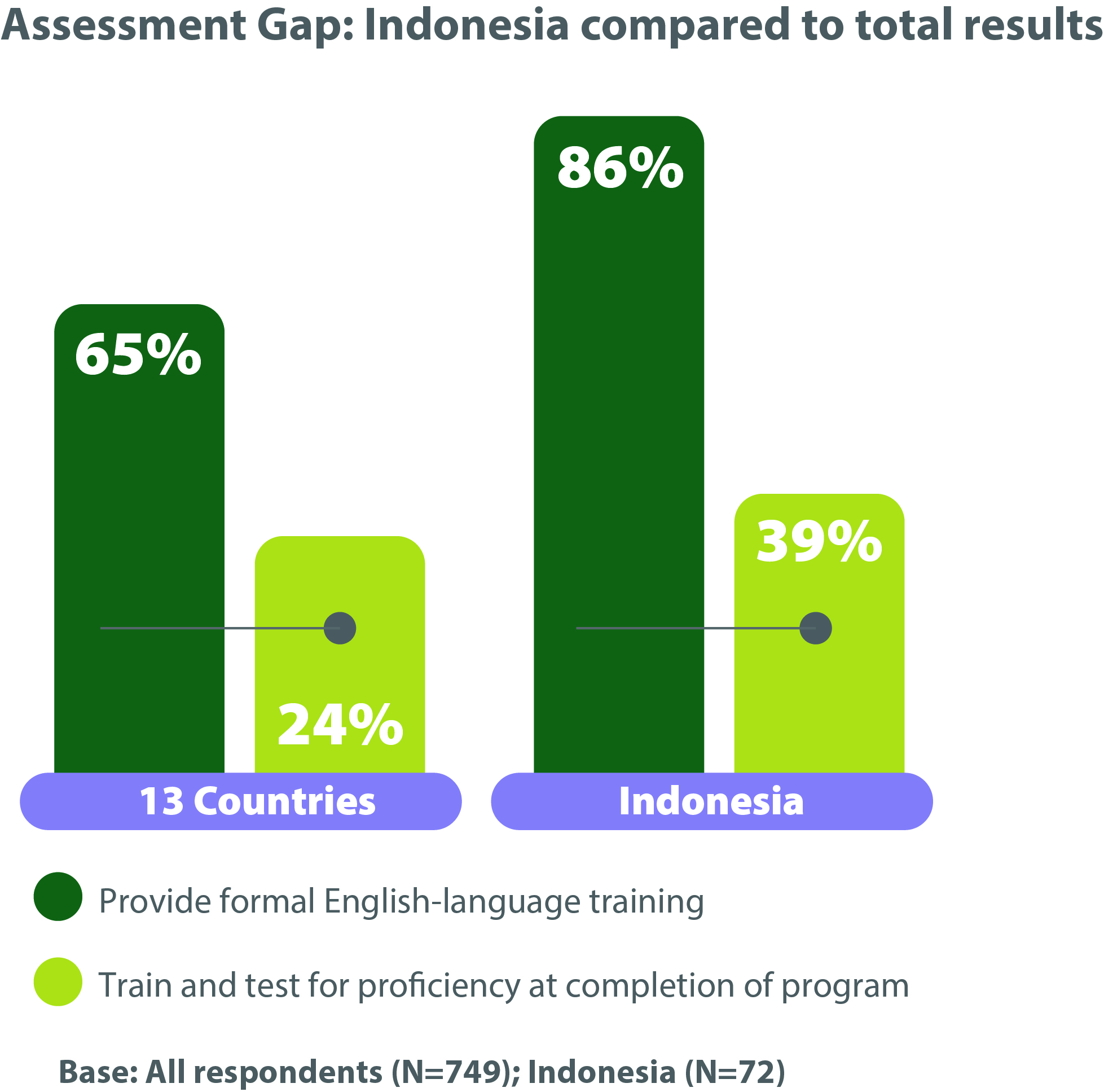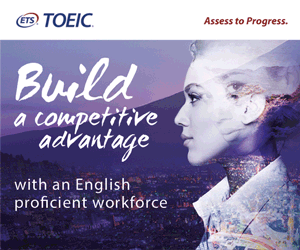Using assessments to evaluate the effectiveness of English-language training
As globalization offers more international opportunities for Indonesia’s businesses, English-language skills are becoming more important than ever.
While businesses are aware of this growing need to enhance global communication capabilities, research conducted by Educational Testing Service (ETS) and Ipsos Public Affairs shows that many do not have plans in place to assess English skills in the workplace.
A global survey of 749 HR leaders found that a large gap exists between the number of companies that provide formal English training programs and the number that assess proficiency at the completion of those training programs.

Overall, 65 percent of HR professionals surveyed across 13 countries said that their companies provide formal English-language proficiency training for employees.
However, only 24 percent test their trainees at the completion of the program. In Indonesia, the gap is significantly larger with 86 percent of those surveyed providing training, but only 39 percent implementing formal assessment upon completion.
This significant assessment gap could cause miscommunication, which could lead to project delays, inefficiency or even loss of business. These are all potential consequences of non-proficient employees being placed in situations where English proficiency is required and assumed, based on completion of a training program.
Failure to determine the effectiveness of training could also result in money being wasted on ineffective programs.
The lack of assessment following training is even more remarkable considering that 93 percent of companies surveyed in Indonesia use English-language assessments as part of their recruitment process.
This finding indicates that organizations are aware of the importance of attracting a workforce equipped with the English-language skills required to operate in a global economy.
However, to keep pace with the changing demands of global commerce, Indonesian businesses need to place greater emphasis on the assessment of training effectiveness over time.
Extending assessment in this way will help ensure the language skills of an organization’s workforce remain fully up to date to improve business outcomes and support the drive for global growth.
For more than 30 years, the TOEIC® program from ETS has set the standard for assessing English-language skills used in the workplace. The TOEIC tests are used by more than 14,000 organizations worldwide and assess the full range of English-language skills.
TOEIC scores provide an accurate, reliable measurement of English proficiency, and are benchmarked to a globally recognized standard so they are easy to understand and compare.
To find out more about how the TOEIC program helps businesses build a more effective workplace, visit http://toeicglobal.com/globalstandards.
Copyright © 2017 by Educational Testing Service. All rights reserved. ETS, the ETS logo and accurately are registered trademarks of Educational Testing Service (ETS) in the United States and other countries. 37432632



